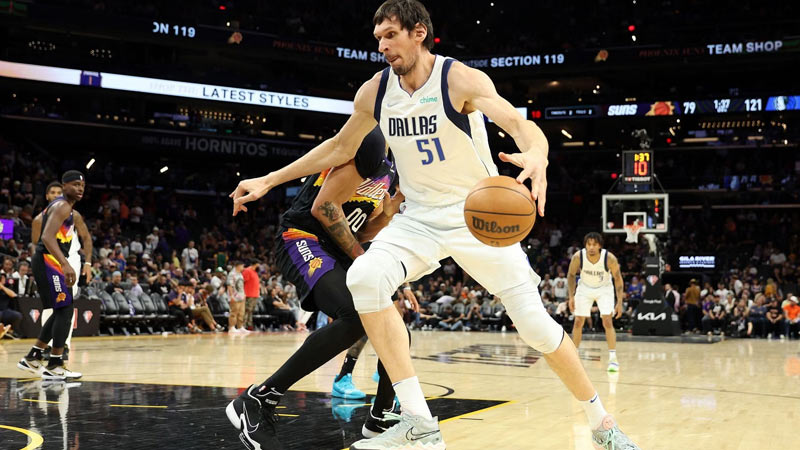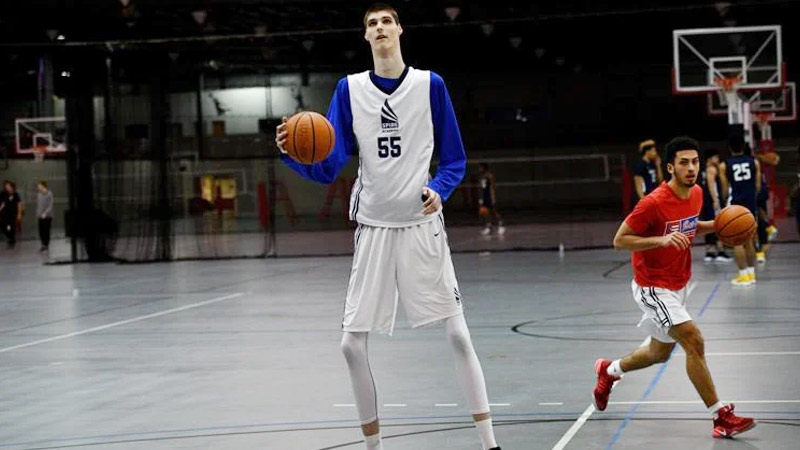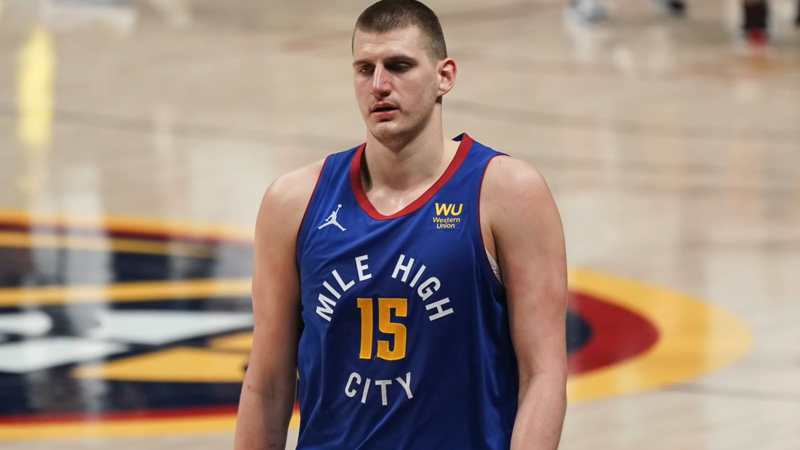Basketball has long perpetuated the belief that height is the ultimate determining factor for success on the court. The image of towering giants dominating the game has become deeply ingrained.
However, in this blog post, we aim to challenge this prevailing notion and delve into the question of whether height truly matters in basketball. Are shorter players at a disadvantage?
Can skills and attributes overcome a height disparity? Join us as we uncover the truth behind this age-old belief and explore the multifaceted nature of basketball, where factors beyond height come into play. It’s time to debunk the myth and discover the real keys to success on the hardwood.
Does Height Matter In Basketball?
Height plays a significant role in basketball and can provide certain advantages to players. Taller individuals often have longer reaches, which allows them to defend and block shots more effectively, grab rebounds, and disrupt passing lanes.
Additionally, height can be advantageous when shooting over defenders, as it provides a better line of sight to the basket.
However, it’s important to note that height is not the sole determining factor of success in basketball. Skills such as agility, speed, shooting accuracy, ball handling, basketball IQ, teamwork, and overall athleticism are also crucial. Shorter players can excel in these areas and make significant contributions to their teams.
Basketball is a sport that values a variety of skills and positions. While taller players often occupy positions like center or power forward, there are also positions like point guard or shooting guard where height is less of a determining factor.
The Role of a Player’s Height in Basketball?

Source: sportskeeda.com
A player’s height can have a significant impact on their role and performance in basketball. Here are some of the ways height can influence a player’s role:
Rebounding
Height is advantageous for grabbing rebounds, both on the offensive and defensive ends. Taller players can reach higher and have a better chance of securing the ball over their opponents.
Shot Blocking And Rim Protection
The height provides an advantage when it comes to shot-blocking. Taller players can contest shots at the rim, deter opponents from driving to the basket, and alter the trajectory of shots. This is particularly important for positions like center and power forward.
Interior Scoring
Height can make it easier for players to score in the paint. Taller individuals have a higher release point for their shots, making it harder for defenders to contest them. They can use their size to finish around the rim and score over smaller opponents.
Defensive Presence
Height can make players more effective on the defensive end. Taller individuals can disrupt passing lanes, contest jump shots, and provide a physical presence in the paint, deterring opponents from attacking the basket.
Reaching Passing Lanes
Height enables players to cover more ground on the court and reach passing lanes. This can lead to steals and interceptions, disrupting the opposing team’s offense.
It’s important to note that while height can provide advantages in these areas, it doesn’t guarantee success. Skills, athleticism, basketball IQ, and other factors also play crucial roles in a player’s performance.
Additionally, there are positions in basketball, such as point guard or shooting guard, where height is less of a determining factor, and players of varying heights can excel in those positions with the right skill set.
Skills and Attributes Beyond the Height of a Basketball Player

Source:
Beyond height, there are various skills and attributes that contribute to a basketball player’s success. Here are some key factors:
Skill Set
Basketball requires a diverse set of skills, including shooting, ball handling, passing, rebounding, and defense. Players who excel in these fundamental skills can have a significant impact on the game regardless of their height.
Agility and Quickness
Quickness and agility are crucial in basketball, allowing players to move efficiently, change direction rapidly, and create scoring opportunities. These attributes are valuable for both offensive maneuvers and defensive assignments.
Basketball IQ
Having a high basketball IQ means understanding the game’s nuances, making smart decisions, and anticipating plays. Players with a strong basketball IQ can read defenses, exploit weaknesses, and contribute to their team’s success through intelligent play.
Shooting Ability
Shooting accuracy and range are vital skills in basketball. A player who can consistently make shots from various positions on the court, including mid-range shots, three-pointers, and free throws, adds versatility to their team’s offense.
Ball Handling
The ability to handle the ball effectively allows players to navigate through defenses, create scoring opportunities, and make accurate passes. Strong ball-handling skills are particularly crucial for guards and perimeter players.
Physicality and Strength
Although height is not the only indicator of physicality, players with strength and physical presence can excel in the post, hold their ground against opponents, and finish strong at the rim. Physical attributes like strength and athleticism can compensate for height disadvantages.
Work Ethic and Mindset
Basketball requires dedication, discipline, and a strong work ethic. Players who are committed to improving their skills, staying in shape, and continually learning and adapting to the game are more likely to succeed.
Teamwork and Leadership
Being a team player and possessing leadership qualities are highly valued in basketball. Players who can communicate effectively, motivate their teammates, and contribute positively to team dynamics enhance their overall impact on the court.
It’s important to remember that while height can provide certain advantages, basketball is a sport that values a combination of skills, attributes, and teamwork.
Players of varying heights and builds have succeeded at the highest level of the game by leveraging their unique strengths and working on areas where they may have disadvantages.
What Is the Ideal Height for a Basketball Player?
There is no one “ideal” height for a basketball player as the sport encompasses a variety of positions and playing styles. The optimal height for a player depends on their role on the court and the specific demands of that position.
Here are the general height ranges for different positions in basketball:
Point Guard
Point guards are typically the shortest players on the court, ranging from around 5’9″ to 6’4″ (175 cm to 193 cm). Their primary responsibilities include ball handling, playmaking, and facilitating the team’s offense.
Shooting Guard
Shooting guards tend to be slightly taller than point guards, ranging from around 6’2″ to 6’7″ (188 cm to 201 cm). They are often relied upon for scoring, shooting from the perimeter, and providing perimeter defense.
Small Forward
Small forwards are versatile players who can perform a variety of roles. They generally range from around 6’5″ to 6’9″ (196 cm to 206 cm) and possess a combination of scoring, shooting, rebounding, and defensive skills.
Power Forward
Power forwards typically have a more physical presence on the court. They usually range from around 6’7″ to 6’10” (201 cm to 208 cm) and excel at rebounding, scoring inside the paint, and providing interior defense.
Center
Centers are the tallest players on the team, typically ranging from around 6’10” to 7’2″ (208 cm to 218 cm) or even taller. They are responsible for protecting the rim, rebounding, scoring close to the basket, and anchoring the team’s defense.
It’s worth noting that these height ranges are general guidelines and there have been successful players who fall outside of them. Basketball is a dynamic sport where skill, athleticism, and basketball IQ are equally important alongside height.
Ultimately, a player’s effectiveness depends on a combination of their individual attributes, skills, and ability to contribute to the team’s strategy and game plan.
Important Fun Facts to Know about The Height of Basketball Players
Here are some fun facts about the height of basketball players:
- Tallest NBA player: The tallest player in NBA history is Gheorghe Muresan, who stood at a towering height of 7 feet 7 inches (231 cm) tall.
- Shortest NBA player: Tyrone “Muggsy” Bogues holds the record for the shortest player in NBA history. Standing at only 5 feet 3 inches (160 cm), he defied expectations and had a successful career as a point guard.
- Average NBA player height: The average height of NBA players varies over time, but as of recent years, it has been around 6 feet 7 inches (201 cm).
- Height and positions: While there are general height ranges for each position, there have been players who have succeeded in unconventional roles due to their unique skill sets. For example, players like Magic Johnson and LeBron James have played point guard effectively despite being taller than the typical point guard height range.
- Height around the world: Basketball is played globally, and the average height of players can vary by country. For instance, countries like Serbia, Croatia, and Montenegro have produced many players who are taller than average.
- Height trends: Over the years, there has been a trend toward taller players in basketball, with teams often seeking height advantages at various positions. This has led to a greater emphasis on player development and scouting for tall prospects.
- Height and advantages: Height can provide advantages in basketball, such as improved reach for blocking shots, rebounding, and finishing at the rim. However, shorter players can excel in other areas like speed, agility, shooting, and court vision.
- Height in other basketball leagues: While the NBA is the most prominent professional basketball league, there are many other leagues around the world where players of varying heights compete and find success.
These fun facts highlight the diversity of heights among basketball players and how the sport accommodates players of different sizes, emphasizing the importance of skills, athleticism, and adaptability.
FAQs
Is height the sole determinant of success in basketball?
No, height is not the sole determinant of success in basketball. While it can provide certain advantages like shot-blocking, rebounding, and scoring in the paint, other skills such as shooting accuracy, ball handling, basketball IQ, teamwork, and athleticism are equally important. Shorter players can excel in these areas and make significant contributions to their teams.
Can shorter players compete effectively against taller opponents?
Absolutely! History has shown us numerous examples of shorter players who have thrived in basketball.
Players like Allen Iverson, Chris Paul, and Isaiah Thomas have overcome their height disadvantages through exceptional skills, speed, agility, and an unyielding competitive spirit. They have proven that size does not limit one’s ability to excel in the game.
Which positions in basketball require more height?
Traditionally, positions like center and power forward have required taller players due to their roles in rebounding, shot-blocking, and scoring inside the paint.
However, with the evolution of the game, positions like point guard and shooting guard now prioritize skills like ball handling, shooting, and playmaking, where height is less of a determining factor.
Are there advantages to being taller in basketball?
Yes, being taller in basketball can offer advantages such as reaching higher for rebounds, contesting shots more effectively, and providing a defensive presence in the paint.
Height can also improve shooting angles and visibility over defenders. However, these advantages can be mitigated by skill, agility, and a strong basketball IQ, as demonstrated by players of varying heights who have excelled in the sport.
What other factors contribute to success in basketball besides height?
In addition to height, a player’s skill set, agility, shooting ability, basketball IQ, physicality, work ethic, teamwork, and leadership qualities are crucial for success in basketball.
Skills such as shooting accuracy, ball handling, passing, defense, and court vision, along with a strong work ethic and a team-first mindset, play vital roles in a player’s overall performance.
Wrapping Up
While height undeniably provides certain advantages in basketball, it is not the sole determining factor of success. The sport embraces a diverse range of positions, styles, and skill sets, allowing players of all heights to contribute and thrive.
Skills, athleticism, basketball IQ, and other factors play crucial roles in a player’s performance on the court.
So, the next time you watch a basketball game, remember that size is just one piece of the puzzle, and it’s the combination of various attributes and skills that truly define a player’s impact on the game.







